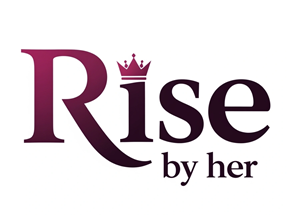Mentorship is one of the most effective ways women can accelerate their careers, gain confidence, and build strong professional networks. At its core, mentorship is a supportive relationship where a more experienced person offers guidance, advice, and encouragement. For women navigating complex work environments, mentorship can be the key to unlocking new opportunities and overcoming gender-specific challenges.
The importance of mentorship for women lies in its ability to provide not just skill development, but also emotional support and strategic insight. Whether it’s navigating a promotion, negotiating a raise, or finding balance in leadership, a mentor offers real-world wisdom that makes a difference.
Research shows that women with mentors are more likely to achieve career growth, higher pay, and job satisfaction. Yet, many women still lack access to mentorship programs: missing out on a proven path to advancement.
If you’re aiming to grow professionally, mentorship isn’t a luxury, it’s a powerful tool. In this guide, we’ll explore how career growth through mentorship works, how to find the right mentor, and how to build a relationship that truly supports your goals.
Let’s get started on building the support system that helps you rise.
What Is a Mentorship Program and How It Supports Women
A mentorship program is a structured relationship where a more experienced professional (the mentor) supports the development of a less experienced individual (the mentee). The goal is to foster career growth, build skills, and create a support system that accelerates success; especially for women navigating male-dominated or competitive industries.
How Mentorship Programs Work
Mentorship programs can vary across industries and organizations, but they typically follow a clear structure:
- Matching process: Mentees are paired with mentors based on career goals, expertise, or personal interests.
- Goal-setting: Both parties agree on objectives, this could include leadership development, improving communication, or navigating career transitions.
- Regular check-ins: Meetings happen weekly, monthly, or quarterly depending on the program’s design.
Types of Mentorship
- Formal mentorship: Organized by companies, universities, or nonprofits with scheduled sessions and clear expectations.
- Informal mentorship: Grows naturally over time, often without a strict structure.
- One-on-one mentorship: A traditional model with a single mentor and mentee.
- Group mentorship: One mentor guiding multiple mentees, or peer mentoring circles offering collaborative support.
Roles and Responsibilities
- Mentors offer advice, share experiences, and help mentees navigate challenges.
- Mentees take initiative, set goals, and remain open to feedback and growth.
The benefits of mentorship programs for women are vast, from boosting confidence and visibility to learning negotiation skills and expanding professional networks. When done right, mentorship is a game-changer.
Key Benefits of Mentorship for Women’s Career Growth
Mentorship programs are powerful tools for advancing women’s careers. Whether you’re climbing the corporate ladder, switching industries, or launching a business, having a trusted mentor can make all the difference.

Skill Development and Confidence
One of the top career development benefits of mentorship is skill-building. Mentors help women identify growth areas (like leadership, negotiation, or public speaking) and provide guidance to improve them. This hands-on learning boosts confidence and prepares women for bigger opportunities.
Networking and Visibility
Mentorship for women’s professional growth often opens doors to valuable connections. A mentor can introduce you to key players in your field, recommend you for opportunities, and even serve as an advocate in high-level discussions. These relationships are especially critical in industries where women are still underrepresented.
Emotional Support and Career Guidance
The workplace can be overwhelming, especially when dealing with imposter syndrome, work-life balance pressures, or subtle gender bias. A mentor offers a safe space to talk through challenges, share insights, and provide personalized advice based on experience. This emotional support can be just as important as practical guidance.
Real Impact Backed by Research
Studies show that mentorship increases promotion rates, job satisfaction, and retention for women. According to a Harvard Business Review report, women with mentors are more likely to negotiate raises and seek leadership roles. Mentorship also plays a crucial role in helping women navigate workplace challenges and systemic barriers.
In short, mentorship isn’t just helpful; it’s transformative. It gives women the tools, support, and connections they need to grow professionally and thrive personally.
How to Find the Right Mentor: Practical Tips for Women
Finding the right mentor can be a game-changer in your career journey, but how do you begin the search? Whether you’re just starting out or aiming for a leadership role, choosing the right person is essential for meaningful mentorship.
Identify Your Goals and Needs
Before reaching out to a potential mentor, get clear on what you want from the relationship. Are you looking to grow leadership skills, change industries, or navigate workplace challenges? Knowing your goals will help you target someone with the right experience.
Look for Alignment in Values and Experience
When considering how to find a mentor for career growth, don’t just focus on titles. Seek someone whose professional path inspires you and who shares similar values. A great mentor understands your goals, respects your journey, and is committed to helping you grow.
Explore Multiple Avenues
Women seeking mentorship don’t need to rely solely on luck. Be intentional:
- LinkedIn: Use filters to find experienced professionals in your industry and send thoughtful connection requests.
- Industry events and conferences: Attend panels or networking mixers; many mentors meet mentees in casual, face-to-face settings.
- Internal company programs: Check if your workplace offers a mentorship initiative and ask to be matched based on your career aspirations.
- Alumni networks and professional associations: These often foster mentorship pairings.
Remember, mentorship doesn’t always have to be formal. Many valuable mentor relationships start with a single conversation. Stay open, curious, and proactive; your ideal mentor might be closer than you think.
How Mentorship Accelerates Career Growth and Leadership
Mentorship is a powerful tool for career advancement and leadership development, especially for women navigating male-dominated industries. Whether you’re aiming for your first promotion or an executive role, having a mentor can accelerate your growth and help you lead with confidence.

Mentorship as a Leadership Catalyst
Mentorship provides women with a roadmap for professional growth. Through consistent guidance, mentors help mentees build critical leadership skills, like strategic thinking, communication, conflict resolution, and decision-making. These are the exact competencies that companies look for in senior and executive-level positions.
A mentor also acts as a sounding board, offering feedback and perspective that help women overcome self-doubt and imposter syndrome, two common barriers to leadership.
Breaking Barriers to Leadership
Women in leadership and mentorship relationships often report higher levels of career satisfaction and promotion rates. In fact, a 2019 study by Development Dimensions International (DDI) found that 67% of women who had mentors advanced to leadership positions, compared to only 29% of women without mentors.
Mentors also open doors. They can introduce you to influential networks, recommend you for leadership programs, or even advocate for your promotion when the time is right.
Real-Life Success Stories
Take Indra Nooyi, former CEO of PepsiCo, who credits much of her leadership journey to mentors who guided her through key transitions. Or consider Ursula Burns, the first Black woman CEO of a Fortune 500 company, who was mentored throughout her rise at Xerox. Their stories underscore how transformational mentorship can be, not just in developing skills but in building the belief that leadership is possible.
For women looking to climb the career ladder, mentorship isn’t optional; it’s essential. It nurtures growth, sharpens leadership capabilities, and empowers women to rise confidently into roles where they can make lasting impact.
Common Mentorship Barriers Women Face and How to Overcome Them
While mentorship can be a transformative career tool, many women encounter real barriers when trying to access or maintain mentorship relationships. These challenges often stem from systemic workplace issues, cultural norms, and personal limitations but they are not insurmountable.
Common Barriers Women Face
- Lack of Access to Female Mentors: In many industries, especially STEM and executive leadership, there’s a shortage of women in senior positions. This makes it harder for younger women professionals to find mentors who understand their unique experiences.
- Work-Life Balance Conflicts: Juggling career, family, and personal responsibilities can make it difficult for women to commit to regular mentorship sessions.
- Bias and Gatekeeping: Some mentorship programs unconsciously favor men or lack inclusive practices, making it harder for women, especially women of color, to get paired with influential mentors.
- Fear of Rejection or Imposter Syndrome: Many women hesitate to reach out for mentorship, fearing they aren’t experienced or accomplished enough to “deserve” guidance.
Strategies to Break Through
- Seek Virtual Mentorship: Platforms like LinkedIn, Ten Thousand Coffees, or Lean In Circles allow women to connect with mentors beyond geographic and scheduling limitations.
- Join Supportive Communities: Women-focused networks such as Ellevate Network, Women in Tech, or industry-specific associations often provide structured mentorship opportunities.
- Be Proactive and Clear: Don’t wait for mentorship to happen. Reach out to potential mentors with a clear purpose and be open to peer or cross-industry mentoring if traditional paths are limited.
- Advocate for Inclusive Programs: Encourage your workplace or professional group to build mentorship programs that prioritize diversity, equity, and flexibility.
Mentorship should be accessible to all women, not just a privileged few. By recognizing the barriers and using creative strategies, more women can claim the mentorship they need to thrive and lead.
How Companies Can Build Mentorship Programs That Support Women
If companies are serious about fostering gender equity and empowering female talent, building a structured mentorship program is a powerful step. Effective mentorship initiatives can help close leadership gaps, improve retention, and support women in navigating career challenges unique to them.
Why Mentorship Programs Matter
Mentorship is a proven driver of career development. For women, it can provide access to networks, guidance through workplace barriers, and the confidence to pursue leadership roles. When companies invest in mentorship programs, they’re investing in long-term talent development and inclusive leadership.
Key Elements of a Successful Company Mentorship Program
- Set Clear Objectives: Define what the program aims to achieve, whether it’s advancing women into leadership, improving retention, or supporting new hires.
- Create Structured Pairing Processes: Match mentors and mentees based on shared goals, values, or expertise. Avoid one-size-fits-all approaches and allow for flexibility.
- Train Mentors and Mentees: Offer guidance on how to communicate, set expectations, and define measurable outcomes. Great mentors aren’t born, they’re trained.
- Support Diverse Participation: Encourage participation across levels, departments, and backgrounds. Representation matters, especially for women from underrepresented communities.
- Build Accountability and Feedback Loops: Use regular check-ins, surveys, and measurable benchmarks to ensure the program evolves with employee needs.
Promote DEI Through Mentorship
An inclusive mentorship program should align with broader DEI goals. Encourage cross-gender mentoring, sponsor women for stretch roles, and give visibility to mentorship success stories to inspire broader participation.
When designed with intention, mentorship programs do more than guide careers, they transform company culture. By building systems that actively support women’s career growth, companies can cultivate stronger, more diverse leadership pipelines.
Future Trends Shaping Mentorship Programs for Women
Mentorship is evolving, and the future looks more inclusive, accessible, and tech-savvy, especially for women in business. As career landscapes shift and remote work becomes the norm, mentorship models are adapting to meet the needs of modern professionals.
Emerging Trends in Women’s Mentorship
- Virtual Mentorship: With the rise of hybrid and remote work, virtual mentorship is no longer a backup option, it’s a standard practice. Online mentorship breaks down geographic barriers and opens doors to global networks of mentors and mentees.
- Peer Mentoring: More women are turning to peer mentoring (collaborative relationships with colleagues at similar career levels) for shared learning, emotional support, and accountability.
- Reverse Mentoring: Companies are now encouraging younger employees to mentor senior leaders, offering fresh perspectives on diversity, technology, and culture, empowering women across generations.
Technology-Driven Mentorship Solutions
Digital tools are revolutionizing how women connect with mentors. AI-driven platforms now match mentors and mentees based on skills, values, and career goals. Apps like MentorcliQ, Together Platform, and CoachHub make mentorship more streamlined, trackable, and scalable within organizations.
Social platforms like LinkedIn are also playing a bigger role, with professional groups and mentorship communities helping women access guidance beyond traditional corporate programs.
What’s Ahead for Women in Mentorship?
The future of mentorship for women will be flexible, personalized, and data-informed. Expect to see more:
- Micro-mentorships: Short-term, goal-specific guidance sessions.
- Inclusive design: Programs tailored to women of color, LGBTQ+ professionals, and women in male-dominated industries.
- Outcome tracking: Success metrics to measure the real career impact of mentoring relationships.
As mentorship continues to innovate, one thing remains clear, it will remain a powerful force in helping women rise, lead, and thrive in their careers.
Why Embracing Mentorship Unlocks Long-Term Career Potential
Mentorship is a career accelerator. As explored throughout this guide, structured mentorship programs play a vital role in unlocking career potential through mentorship, especially for women navigating today’s competitive and often male-dominated workplaces.
We’ve covered how mentorship supports women’s career growth by offering guidance, emotional support, leadership development, and opportunities for advancement. From understanding how mentorship works to learning how to find the right mentor and overcome common challenges, every step of the journey matters. For companies, investing in mentorship programs means investing in more diverse, empowered, and resilient leadership.
Whether you’re early in your career or stepping into a leadership role, the right mentor can help you gain clarity, build confidence, and take strategic action. The future of women’s career growth with mentorship is bright, and now is the perfect time to step into it.


